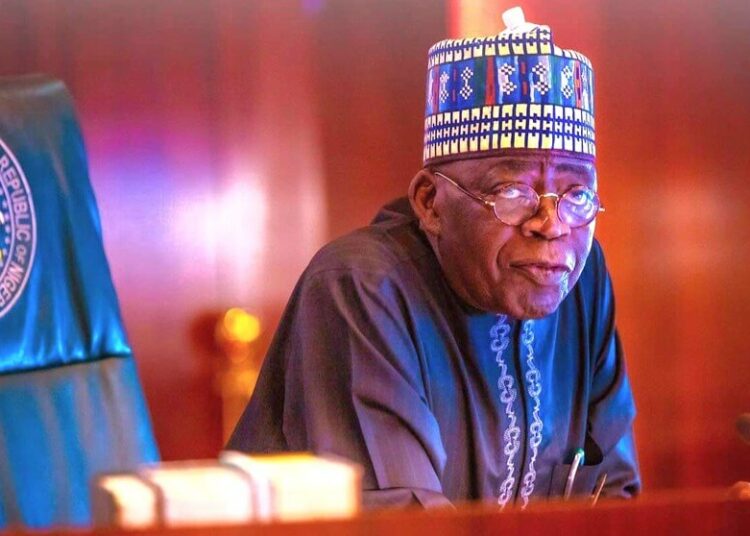There are reports that President Bola Ahmed Tinubu has approved a princely sum of N10 billion for a solar power system exclusively for Aso Rock Villa, the seat of the Presidency. Previously, the alternative power source for the Villa has been diesel-powered generators.
The project is expected to reduce dependence on the national grid and cut energy costs for the State House, especially considering that the Abuja Electricity Distribution Company (AEDC) listed the Presidential Villa among top government debtors, with an outstanding bill of N923.87 million in February 2024. GovSpend, a public finance tracking platform, claimed that the presidency spent more than N483 million on electricity in 2024 alone.
Nigerians are familiar with the cost of petroleum products in this regard and may be inclined to support the government’s move, presumably as a cost-saving device. The worry is that the authorities seem to be concerned only about their convenience without considering the plight of ordinary Nigerians who, due to the inefficiency of the public power supply system, are forced to bear the burden of official incompetence and failures.
“White House Enjoys It Too,” Presidency Defends N10bn Solar Power Project For Aso Rock Villa
Experts are already raising concerns regarding the implications of the government’s decision to single out the Villa for this preferential treatment. If the Presidency cannot trust the national power supply, what hope is left for the average Nigerian business or household? And is this the beginning of a systemic reform? Or can this mark the cementing of elite energy privilege?
Power sector watchers are worried that this gargantuan budgetary provision could be misinterpreted as the President’s removal of Aso Rock Villa from the national electricity grid. Or perhaps he plans to dismantle the public power system altogether through this obvious vote of no confidence in the country’s ill-managed national grid? We note also that some high-profile businesses have already disconnected from the national grid.
These issues become pungent considering the cost and availability of solar as an electric power source. Is it part of the President’s plan to encourage Nigerians to follow his lead and replicate the CNG policy in the transport sector in the public electricity sector? In our opinion, it is important that the government comes out openly and tells Nigerians what to expect from this seemingly shift in energy policy.
It is pertinent to point out that not many Nigerians can afford the cost of installing solar systems in their homes and offices, while accommodating the high tariff from the electricity distributing companies for services not rendered.
We are even more surprised that President Tinubu is involved in this decision, which could be interpreted as rationalising the inequities in the country’s socio-economic and political space, where the emphasis is on the welfare of the elite. We recall that under the Presidency of Olusegun Obasanjo, Tinubu, as Governor of Lagos state, persuaded the late Chief Bola Ige to choose the Ministry of Power instead of the Attorney General of the Federation, which Ige would have preferred. That was perceived then as evidence that he appreciated the relevance of electricity in the country’s economic development and was determined to do what was necessary to achieve the same for the common good.
We also recall that in one of his political outings, Tinubu told Nigerians not to vote for him again if he failed to provide reliable and affordable electric power to them. It was meant to demonstrate his commitment to making electricity available at a reasonable cost. Nigerians might take him seriously and possibly hold him by his words. But in setting aside this huge financial outlay for power supply to the Villa, the President is stating clearly that he has lost confidence in the public power grid and, by extension, the generating and distributing companies that have held the nation hostage since the unbundling of Power Holding Company of Nigeria (PHCN).
It may also indicate an admission of policy failure in the power sector. To date, the debate is still on about the exact amount spent by the Olusegun Obasanjo administration on the Independent Power policy through the National Integrated Power Projects (NIPP). Protagonists and antagonists in that shameful debate quibble over $16 billion. In addition, the Central Bank of Nigeria (CBN) under Godwin Emefiele allegedly spent over N1.5 trillion in seven years to keep the nation’s power sector from collapsing. After all these expenditures that are beginning to look like wastages, the government is pointing in the direction of green energy that solar represents.
It is necessary to stress that, given the impact of climate change, Nigerians ought to applaud a policy shift towards clean energy—that is, if there is such a policy. As a newspaper, we are apprehensive that the state governments may follow the Presidency’s example. The cost implications of this, when it happens, can only be imagined, especially when corruption is brought into it.
From this standpoint, we urge the federal government to make clear what its intentions are regarding electricity supply to the people. Pandering selectively to the convenience of those in government and political power will be ill-advised and counterproductive. Nigerians across the social spectrum deserve access to the same facilities available to the people they elected to represent them and serve their interests.





